- Home
- Terry C. Johnston
Lay the Mountains Low Page 7
Lay the Mountains Low Read online
Page 7
“He sold his life dearly that day, Colonel.”
Perry nodded, noticing the many copper cases in the grass near Gunn’s feet. “Colonel Miller, assign three men to bury Sergeant Gunn.”
The rest pushed on toward that distant ridge where Perry had deployed his battalion for their abbreviated battle against the screaming horsemen. After crossing another hundred yards, the captain realized he would never forget the grisly sight that greeted them this sunny Tuesday morning. While he was certain the terror of their frantic retreat would forever trouble his waking hours, Perry was just as certain the horror of what lay before him at this very moment would forever haunt his nights.
That and the unearthly stench.
Arms and legs frozen akimbo in death, twenty-some bodies lay scattered across the hillsides, every last one blackened by nine days of mortifying decay and a relentless summer sun, flesh grotesquely swollen with the gases of decomposition until most of the faces were totally unrecognizable in their horrid death grins.
Oh, the stench. When that morning’s warm breeze suddenly died and the heavy air lay still upon that field of death, the pungent odor rose up to assault a man with a gagging ferocity.
Perry quickly dragged out his big bandanna and clamped it over his mouth and nose, remembering to breathe through his mouth. The next time the capricious breeze died, he felt his eyes beginning to water with the putrid stench of decaying flesh. His skin began to crawl as he pulled back on the reins and signaled a halt to Miller’s and Winter’s companies.
On both sides of Perry now the troopers came to a halt. He heard the quiet sounds as the men noisily swallowed, struggling to control their stomachs, while some audibly gagged. One man spilled off the side of his horse, collapsing to his knees as he retched himself free of his hearty breakfast of hardtack, sidemeat, and coffee. Most of it still undigested as it seeped into the grassy soil.
“Get that man back where the air is better,” Perry ordered, his eyes streaming now with the very tangible sting of long-forgotten death, doing all that he could to keep from joining those who were gagging at the sight, at the stench, at the very sound of the big, bloated horseflies at work on the bloodied corpses.
Throbbing masses of insects blackened every dead soldier’s eyes, waded their way around in his every wound, crawling in and out of the gaping nostrils, a’swim in every swollen, distorted mouth.
It almost appeared these dead were crying out, calling forth from the far side of eternity. …
He turned slightly, swallowed hard, and gave his orders. “C-Colonel Miller. Captain Winters. Bring up the infantry companies. Divide them and your men into three platoons each. One platoon from each company will be on burial detail at a time. The other two platoons from each company will remain in reserve, back where the breathing is a little better. Trowel bayonets. Is your mission understood?”
But Perry didn’t really look at either of the officers for a response before he quietly, and quickly, concluded, “Do all that you can to give each man a decent burial, gentlemen.”
Miller almost lost control as he nodded in answer. His tearing eyes held unabashed gratitude as he quickly turned aside and rode off to pass on the order to the infantry commanders.
Winters saluted, and swallowed hard. This Ohio-born officer had risen up through the ranks after enlisting in the First Cavalry in 1864. “Very good, Colonel. That way we can sp-spell the men.”
One by one, the dismounted cavalrymen and foot soldiers located the bodies scattered in the tall, waving grass. It wasn’t hard to find the dead.
Two or three soldiers sank to their knees beside a body and began scraping at the black soil with their trowel bayonets they pulled from the leather scabbards hanging from their 1876 pattern duty belts, which were fitted with fifty canvas cartridge loops. The three-man squads frequently spelled one another, as even the hardy were quickly forced to crawl away, retching, struggling to get upwind, to put some distance between them and the distorted remains until they could once again scratch at the ground, removing one small trowelful of soil at a time from what would be each fallen soldier’s final resting place.
One small handful of dirt at a time. Scrape the ground with the trowel. Keep from heaving. Scoop the dirt out of the tiny hole. Gag a little. Scrape some more. Pull at the long roots of the tall, nutritious grasses. Scratch the loam from the shallow trench. Stop of a sudden and lunge away, gulping for air. Ashamed when your stomach won’t obey and you gag on the burning contents of your breakfast as it hurtled on past your tonsils and over the back of your tongue.
Then you wiped your mouth on your sleeve and scraped some more, eyes burning, tearing spilling down your cheeks until you were almost blinded by the sting of the stench and could barely see.
How thankful Captain David Perry was that many of those men closest to the putrefying bodies had tears in their eyes, streams of them glistening down their cheeks. Right here no one would know exactly why he was crying among all these with tears in their eyes.
Merely looking at those bodies from F and H Companies. Men he might have recognized on the parade at Fort Lapwai had they lived through that fight on the White Bird. Nameless men who had died an ignoble death as the Nez Perce rolled up the left side of their line and hacked Perry’s battalion to ribbons. Nameless, and now faceless, anonymous soldiers who had died here for their country … fighting an enemy that had surprised them all, rising up to show they were willing to die for their country.
One by one. By one. The hours crawled by with agonizing slowness because the burial details were often finding the swollen, mortifying bodies were unmanageable. As soon as the soldiers attempted to pull a corpse into a shallow grave, a leg or an arm tore free of the body already sticky, pasted to the grassy slope.
Because most of the dead had been stripped of outer clothing—boots, britches, and campaign blouse—every skull and every inch of bare flesh lying against the ground had begun to decay, so much so that when the burial parties dragged the corpses toward their final resting places, that flesh tore free. As hair was pulled free in the tangled, blood-crusted grass, it made many of the bodies appear as if they had been scalped or horribly mutilated by the victorious warriors.
Just the sight of those dismembered corpses, the blackened flesh ripped off and left clinging to the grass, was enough to cause men to begin retching anew.
From one group to another, Perry slowly rode among the burial parties, suggesting how the sergeants should proceed with their details.
“Dig the grave as close as you can to the body,” he quietly told the noncoms from behind his bandanna. “Then do your best to roll the body into the hole.”
“That way I won’t pull off ’nother arm the way I just did,” grumbled Sergeant Bernard Simpson, just before the First U. S. cavalryman had to swallow down a mouthful of bile. “S-sir.”
“Do the best you can, Sergeant,” Perry sympathized, feeling a touch of remorse for these men facing a horrid and daunting task. “Every man here understands we’re all just doing for others what we’d want done for us.”
CHAPTER SIX
JUNE 26,1877
“THERE’S YOUR GODDAMNED MURDERIN’ INJUNS FOR YOU!” bellowed Ad Chapman at the handful of “Captain” Tom Page’s Walla Walla volunteers who had joined him in that ride due west along the high, bare ridge to reach this overlook where they could peer down into the valley of the Salmon.
“Those bastards are running south across the river!” exclaimed E. J. Bunker as they all squinted in the fading light as clouds rolled in to begin blotting out the sun.
Those half-naked horsemen the thirty-six-year-old Chapman had spotted across the Salmon could be no more than a small part of the village they had bumped into back on that bloody Sunday.
George Shearer rubbed an aching shoulder and growled, “I’ll wager the squaws and nits’ve all crossed the river, fixin’ to disappear in the mountains.”
Chapman looked at his friend a moment, nodding. “Army never catch ’e
m once they get in that broke-up country other side of the Salmon.”
“S’pose we oughtta get back to tell the general?” Bunker asked, his horse done blowing, starting to crop the short grasses on this nearly barren ridge top.
Chapman fished a plug of tobacco from his coat pocket. “If Howard’s gonna have a ghost of a chance to get his hands on them Nez Perce, he’ll have to quit his dawdling.”
Bunker snorted, “That one-armed general still says he’s gonna wait for more reinforcements before he’ll attack that village again.”
Chapman looked at each of their faces a moment, then said, “The way those red bastards fought us a few days back, might not be so bad an idea Howard has more men afore he jumps that camp. Let’s get on down below—give that general the news he’s been waiting to hear.”
He rode tall in the saddle. Thin as a split rail and every bit as lean as a buggy whip. Chapman still had a full head of hair: black as the bottom of a tar spring did it spill across his shoulders. Born back east in Iowa, Chapman had been no more than seven years old when his family traipsed out to Oregon during that historic western migration along the Emigrant Road. His father would become one of the founders of Portland.
In this country rife with opportunity, nine-year-old Arthur had carried dispatches for the army between The Dalles and Fort Walla Walla during the Rogue River Indian War. Six years later, young Chapman had settled over east in Nez Perce country, sending down roots in a piece of ground beside White Bird Creek, at the mouth of a stream that would one day soon bear his name. There he began raising cattle and breeding horses, as well as operating his ferry across the Salmon River at the mouth of the White Bird.
Then almost three years back he had sold his ranch to John J. Manuel and moved north to a new homestead he built on Cottonwood Creek some eight miles from Mount Idaho, out on the Camas Prairie, where he continued to breed horses. Over the last two weeks of Indian troubles, Chapman had lost some four hundred head of prime stock to Nez Perce raiding parties.
He’d had himself a checkered history with the tribe, sometimes friendly, ofttimes not. On the balance, he’d admit, mostly not so friendly. With that short fuse he had to his temper, Chapman hadn’t been all that good a neighbor to the Nez Perce, even though he had married an Umatilla squaw a few years back. Even though he spoke real good Nez Perce, too. A few years back the couple had a young boy, and now his wife was expecting another child come early fall.
Problem was, hard as he tried, for the longest time Ad couldn’t seem to win with either side—not with most of the Nez Perce, who distrusted him to one degree or another and not with most of the whites, who considered him a traitor because he had married an Indian woman and fathered a half-breed child.
Simple truth was, Chapman didn’t endear himself to some folks simply because he called things as he saw them. To some white folks, that was downright heresy. A white man was supposed to stick up for a white man, no matter what.
But then, on top of that uneasiness, there was a story going the rounds that the Non-Treaty bands didn’t trust him any farther than they could throw him because they claimed Chapman had stolen some of their cows and sold them off to Chinese miners up at Florence and Elk City in the mountains. Hell, if those Indians didn’t take better care of their stock than to leave their cattle run through Chapman’s upper pasture, they deserved to be missing a few cows!
Such was the delicate line he walked between the white world and red in this Salmon River country. For good or bad, there honestly wasn’t a man who possessed more experience dealing with the Non-Treaty bands than Arthur Chapman. In fact, over the years, he had forged quite a bond with Chief Looking Glass and a few of his headmen. Ad figured when you got right down to it, his steadfast friendship with the old chief had to go a long way to showing the Nez Perce he wasn’t so bad a white fella after all.
Why, on the Thursday before the White Bird massacre, two of his Nez Perce friends—Looking Glass and Yellow Bear—even rode over from the big traditional gathering the Non-Treaty bands were having at the head of Rocky Canyon on Camas Prairie to let Chapman know that some of the young bucks had gone on the warpath and had already killed seven white men by that time. Looking Glass said he was taking his people and moving back to their homes on the Clearwater, wanting to get away from the troublemakers. A damn honorable act by those two old Nez Perce friends to come warn him at a time like that, even going so far as to suggest that he clear out till things simmered down a bit. No sooner had he gotten his wife and son started away than the three of them spotted a war party headed for his ranch.
Chapman figured then and there he might well owe Looking Glass his life for that timely warning, since it turned out to be a horse race all the way to the outskirts of Mount Idaho. Sprinting into the tiny settlement barely ahead of those warriors screaming for his blood, Ad dropped out of the saddle in front of Loyal P. Brown’s hotel and began spreading the alarm, shocking one and all with the first report of the Salmon River murders. By nightfall the folks flooding into town had formed their own militia company and elected Chapman as its captain.
In the predawn darkness of the following morning, June 15, Chapman had slipped out of town and back to his ranch to keep a planned rendezvous with Looking Glass and Yellow Bear. As the sky was graying just before five o’clock, he rode up to his friends, a bit surprised to find them accompanied by two other warriors. The chief grimly related the names of the settlers who had been killed up to that point in time on the Camas Prairie and along the Salmon, too. Good Indians they were, those Looking Glass people.
Ad was mightily relieved none of the Asotin band were involved with the murders or later on in the fight that left so many soldiers dead in the White Bird Canyon. Now if Looking Glass’s people could manage to stay out of the way of Howard’s army, the soldiers would quickly get the rest of those Non-Treaties mopped up and driven onto the reservation.
By the time Ad’s civilians had backtracked along the high ridge, then picked their way down the west slope into the valley to reach the site of the army’s White Bird debacle, the clouds were noticeably lowering. Distant thunder suddenly reverberated off the surrounding hills. Its long-dying rattle bouncing off the nearby slopes compelled many of the edgy soldiers to duck and scramble for their rifles, preparing for an attack by the Nez Perce.
An occasional finger of lightning starkly split the darkness with a brilliant display. As the civilians approached the first of the burial details, Ad noticed how the soldiers had tied bandannas over their faces, covering everything below their eyes as they tugged and rolled a bloated, distorted figure onto a gray army blanket, then dragged the corpse to the shallow trench they had scraped out of the rocky soil nearby. Hoisting up the four corners of the blanket, the four soldiers rolled the stinking remains into the hole.
One of the soldiers turned suddenly and fell to his knees, ripping off his bandanna as he violently puked into the grass.
Another soldier knelt over the sickened man, patting him on the back as the civilians rode up. He said to Chapman, “The critters been at this one.”
“Critters?”
“Wolves, coyotes maybe?”
Chapman crossed his wrists over the saddlehorn and hunched forward. “Likely not wolves. Used to live right down yonder, mouth of that little creek. Maybeso it was a coyote got to that dead soldier—I’ve seen a mess of coyotes around here in my time. Still, I’d wager it was small critters ate on ’im. Raccoons, maybe a badger. Chewed the poor fella up, did they?”
The soldier nodded as the first of the big drops started to fall out of the lowering sky. Then he gestured across the slope. “Some of the rest been et on, too.”
Giving the blackening heavens a sidelong glance, Chapman said, “Rain comin’—I figger your work for the day is ’bout over now.”
Gasping, the soldier on his knees replied, “Thank Jesus in Heaven for small b-blessings.”
The tall soldier patted the man on the shoulder, then looked again at Chapman
as a roll of thunder faded on down the canyon. “Sounds just like God in Heaven is firing a burial volley to honor our dead.”
Sensing the hair rise on his arm with more than the dramatic electrical charge in the clean, damp air, Chapman gently nudged his horse away from the three soldiers.
He didn’t know if he believed in God anymore. Not when such terrible things were happening to women and children, even to some men—folks who had never given hurt to any person. Couldn’t be a God to his way of thinking.
Finding Howard taking cover temporarily beneath some streamside trees about the time the general was giving orders to suspend the burial duties with only eighteen of the dead interred, telling his officers that he intended for his command to return to Johnson’s ranch for the night, Chapman and the volunteers reined up nearby and dragged out their rubber ponchos as the underbelly of the low sky opened up on them. While the rain grew serious, the small band of civilians dismounted to report sighting the warriors upriver, across the Salmon.
“They’ve crossed already,” Howard grumped.
“You can’t spend much time here, General,” Chapman advised.
That made Howard’s face go stony, cold. “These men deserve a decent burial, Mr. Chapman.”
“Meantime, your prey gonna waltz on outta sight.”
“I’ll just have to take that chance, won’t I?” Howard replied testily. Then he turned and pointed on down the narrow valley. “Whose place was that?”
“Used to be mine, General,” Chapman began. “Sold it to John Manuel.”
“Was he one of the victims of the Nez Perce depredations?”
“Him, and his wife, their youngest, a baby—all gone. No hide, no hair. Had a daughter, Maggie, too—”
“No, I saw her yesterday in Mount Idaho,” Howard stated sadly. “Claimed Joseph killed her mother and baby brother.”
Chapman regarded the heap of ruins, all that was left of the nearby buildings he had hammered together of a time years ago. “You wanna ride along, we go take a look for ourselves, General?”

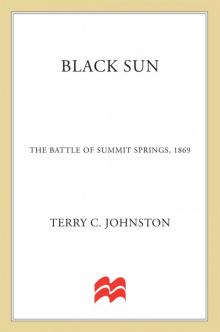 Black Sun, The Battle of Summit Springs, 1869
Black Sun, The Battle of Summit Springs, 1869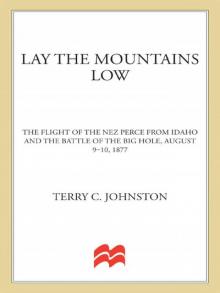 Lay the Mountains Low
Lay the Mountains Low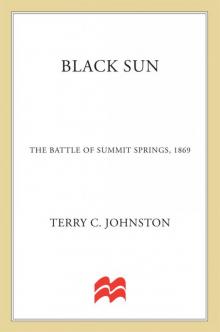 Black Sun: The Battle of Summit Springs, 1869 (The Plainsmen Series)
Black Sun: The Battle of Summit Springs, 1869 (The Plainsmen Series)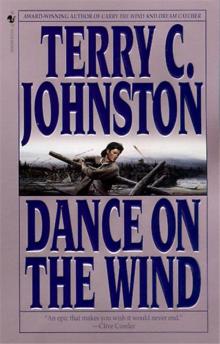 Dance on the Wind tb-1
Dance on the Wind tb-1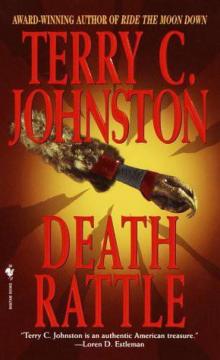 Death Rattle tb-8
Death Rattle tb-8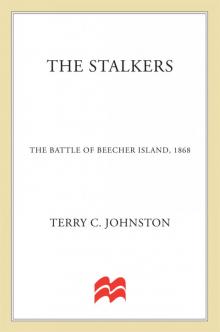 The Stalkers
The Stalkers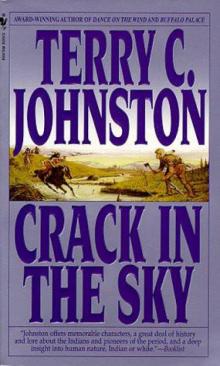 Crack in the Sky tb-3
Crack in the Sky tb-3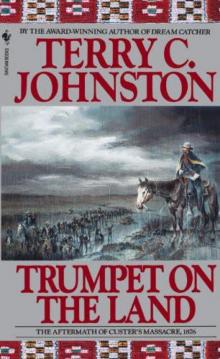 Trumpet on the Land: The Aftermath of Custer's Massacre, 1876 tp-10
Trumpet on the Land: The Aftermath of Custer's Massacre, 1876 tp-10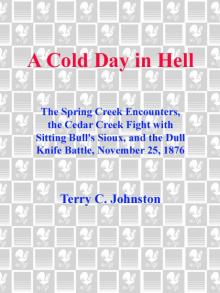 A Cold Day in Hell
A Cold Day in Hell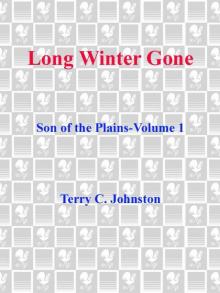 Long Winter Gone: Son of the Plains - Volume 1
Long Winter Gone: Son of the Plains - Volume 1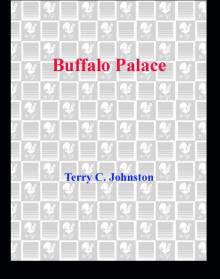 Buffalo Palace
Buffalo Palace Cries from the Earth
Cries from the Earth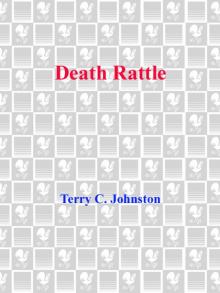 Death Rattle
Death Rattle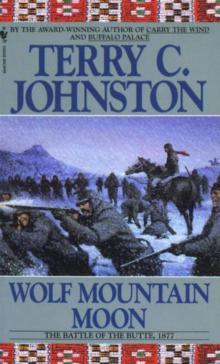 Wolf Mountain Moon: The Battle of the Butte, 1877 tp-12
Wolf Mountain Moon: The Battle of the Butte, 1877 tp-12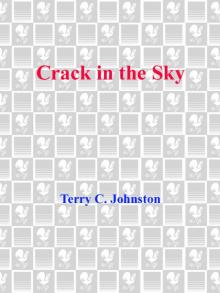 Crack in the Sky
Crack in the Sky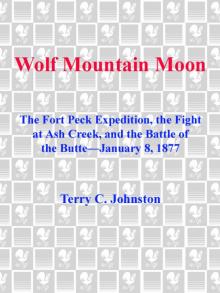 Wolf Mountain Moon
Wolf Mountain Moon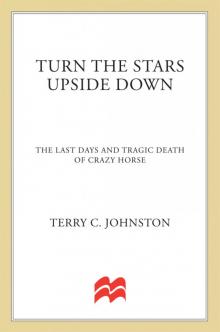 Turn the Stars Upside Down: The Last Days and Tragic Death of Crazy Horse
Turn the Stars Upside Down: The Last Days and Tragic Death of Crazy Horse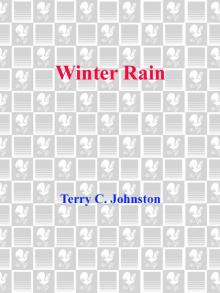 Winter Rain
Winter Rain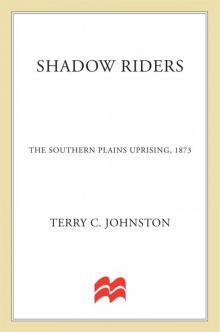 Shadow Riders: The Southern Plains Uprising, 1873 (The Plainsmen Series)
Shadow Riders: The Southern Plains Uprising, 1873 (The Plainsmen Series)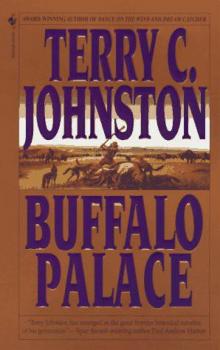 Buffalo Palace tb-2
Buffalo Palace tb-2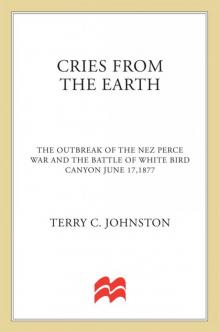 Cries from the Earth: The Outbreak Of the Nez Perce War and the Battle of White Bird Canyon June 17, 1877 (The Plainsmen Series)
Cries from the Earth: The Outbreak Of the Nez Perce War and the Battle of White Bird Canyon June 17, 1877 (The Plainsmen Series)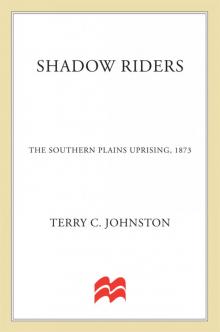 Shadow Riders, The Southern Plains Uprising, 1873
Shadow Riders, The Southern Plains Uprising, 1873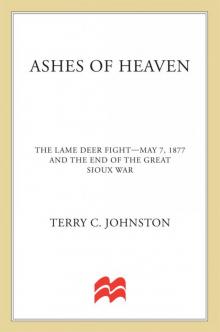 Ashes of Heaven (The Plainsmen Series)
Ashes of Heaven (The Plainsmen Series)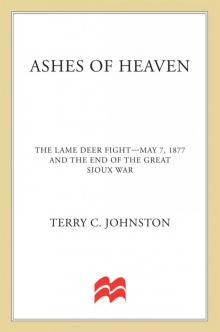 Ashes of Heaven
Ashes of Heaven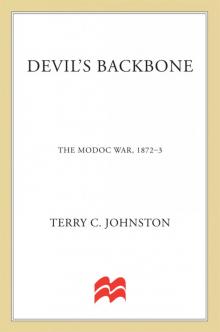 Devil's Backbone: The Modoc War, 1872-3
Devil's Backbone: The Modoc War, 1872-3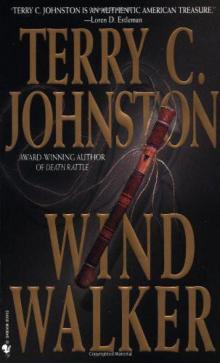 Wind Walker tb-9
Wind Walker tb-9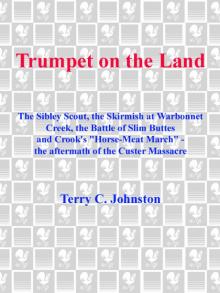 Trumpet on the Land
Trumpet on the Land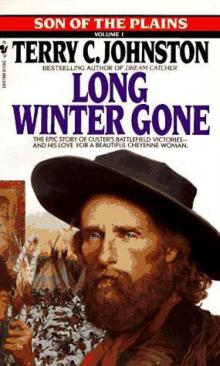 Long Winter Gone sotp-1
Long Winter Gone sotp-1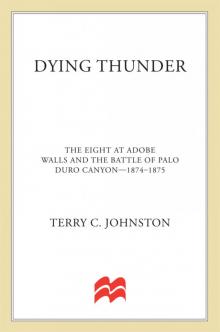 Dying Thunder
Dying Thunder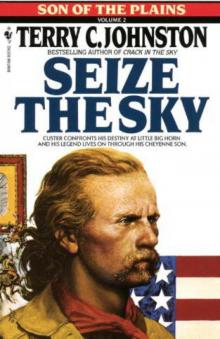 Seize the Sky sotp-2
Seize the Sky sotp-2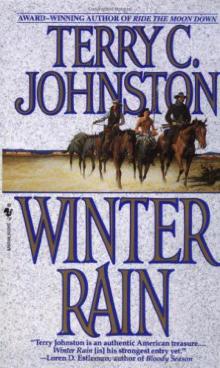 Winter Rain jh-2
Winter Rain jh-2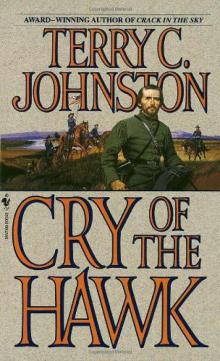 Cry of the Hawk jh-1
Cry of the Hawk jh-1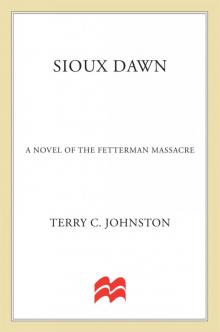 Sioux Dawn, The Fetterman Massacre, 1866
Sioux Dawn, The Fetterman Massacre, 1866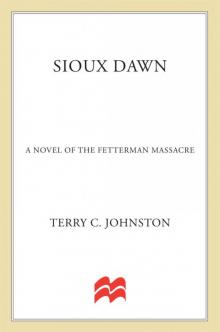 Sioux Dawn: The Fetterman Massacre, 1866 (The Plainsmen Series)
Sioux Dawn: The Fetterman Massacre, 1866 (The Plainsmen Series)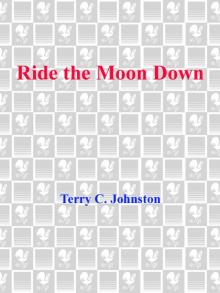 Ride the Moon Down
Ride the Moon Down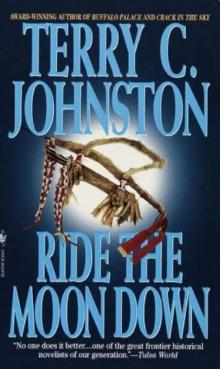 Ride the Moon Down tb-7
Ride the Moon Down tb-7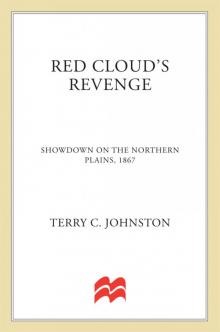 Red Cloud's Revenge
Red Cloud's Revenge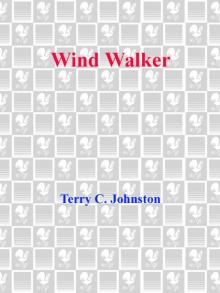 Wind Walker
Wind Walker